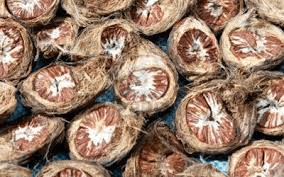
It is one of the most popular psychoactive substances in the world, in fourth place after nicotine, alcohol, and caffeine. But while betel nut is an important cultural and social tradition in many countries, growing evidence points to serious health effects from regular use.
Betel nut has a long history in South and Southeast Asia and the Pacific Basin. In Guam and other Pacific islands, its use can be traced back as far as 2,000 years. A habit passed down through generations, chewing betel nut is a time-honoured custom for 10–20 percent of the world’s population.
 Many people chew betel nut for the energy boost it produces. This is likely due to the nut’s natural alkaloids, which release adrenaline. It may also result in feelings of euphoria and well-being.
Many people chew betel nut for the energy boost it produces. This is likely due to the nut’s natural alkaloids, which release adrenaline. It may also result in feelings of euphoria and well-being.
Some traditional beliefs hold that it may offer relief for a range of ailments, from dry mouth to digestive problems. However, the drug has not been well tested in clinical trials, and evidence of any health benefits is limited.
Research has revealed some serious health risks of betel nut. The WHO classifies betel nut as a carcinogen. Many studies have shown a convincing link between betel nut use and cancer of the mouth and oesophagus.
A study in the Journal of the American dental association reports that betel nut users are at a higher risk for oral submucous fibrosis. This incurable condition can cause stiffness in the mouth and eventually the loss of jaw movement. Regular chewing of betel nut can also cause gum irritation and tooth decay. Teeth may become permanently stained deep red or even black.




